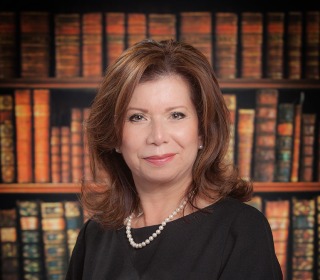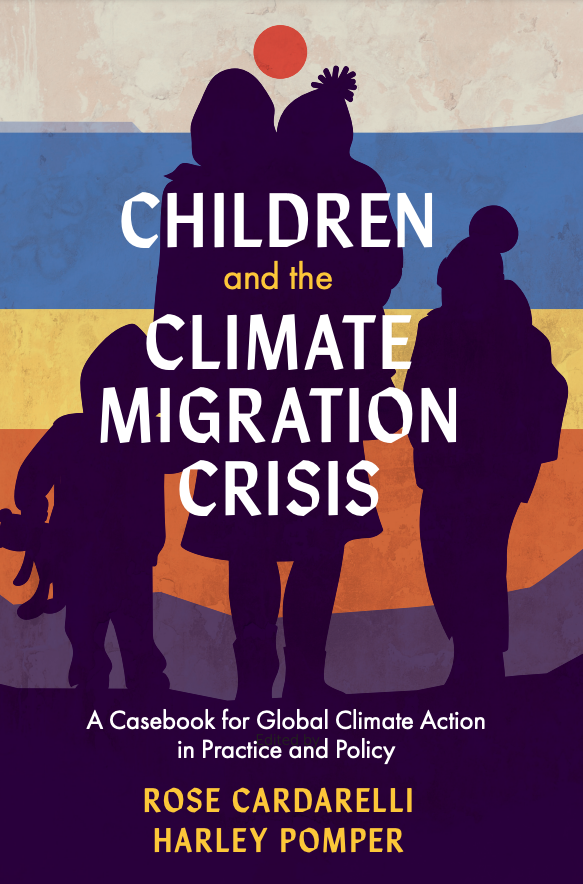Rose Cardarelli ‘81 sees great humanitarian peril associated with the worsening effects of climate change, but she is choosing to take action rather than succumb to despair.
Cardarelli is the founder and CEO of the Education for All Coalition, an international non-governmental organization supporting refugee education worldwide. Her career has included military service and academia, and she is a recognized expert in strategy, global education and sustainable development.
She is bringing the totality of her expertise to the topic of climate change, specifically the migration crises it is creating. By 2050, she said, an estimated 200 million people will be displaced because of climate, half of whom will be children. (The topic was also central to the address she offered as Fitchburg State’s undergraduate commencement speaker in May 2022.)
The problems are global, and the solutions will require shared action on a massive scale. “Putting on Band-Aids is not sustainable,” Cardarelli said. “You just reinvent the wheel everywhere you go. But I have seen collaboration come together. As long as we’re working together and solving problems, the world’s going to be a better place for everybody.”
Cardarelli’s deep thinking on the subject is explored in detail in her upcoming book, Children and the Climate Migration Crisis: A Casebook for Global Climate Action in Practice and Policy, slated for publication next spring by Emerald Publishing. With her co-author Harley Pomper, Cardarelli uses case studies to outline a multi-pronged response to the conditions, including how to foster the development of social and emotional strengths that children will need to grapple with the changing world.
Cardarelli said she sees the climate migration crisis as a global security issue, as many countries lack the organizations and infrastructure that can respond to emergencies. “If you don’t level the playing field for all of these countries around the world, it’s a question of the haves and the have-nots,” she said. “You want everybody to have education, healthcare, food and water. That way there’s peace. It’s pretty idealistic, but I believe it can happen.”
Climate events are becoming more devastating, she said. And unlike political refugees, there is no formal recognition for “climate refugees.” And that will continue to be a problem.
“It’s a domino effect from lack of water, to lack of food, to starvation,” she said. “Mass migration will then affect other countries. It can hamper economies, it can affect employment, and it can harm social systems. It puts pressure on healthcare systems, and then, of course, education.”
The book’s case studies look at global regions and their responses to crises, and includes interviews with scientists, engineers and academics. She sees resiliency as a critical skill that children will need to foster.
“Trauma can affect a young person’s ability to learn,” Cardarelli said. “Think of the child leaving Syria and going to Greece. How do they adapt? How do you help them to gain the inner strength to be able to not be angry and be able to respond? How can we help children understand their emotions and how to adapt?”
While the cultures affected by climate change are diverse, the commonality is the need for solutions that prioritize resiliency. “We ultimately want to dignify equitable and safe climate migration as a global objective for all these countries,” she said. “The book is about trying to create a systemic, cross-sectional approach to all these factors that affect governance. Everyone agrees there’s a problem, but no one ever talks solutions. That’s the goal of the book.”

